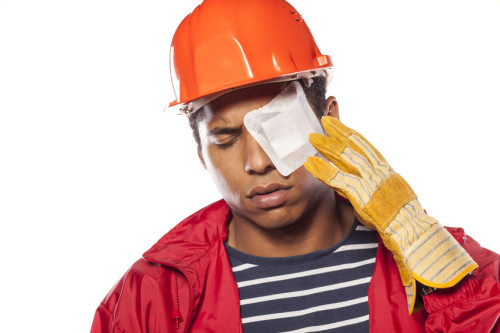Watch out for these everyday workplace hazards
 The most common workplace safety concerns aren’t usually the most obvious. For the most part, that’s a good thing — if chemical leaks, explosions and crane collapses happened more frequently, we’d never get anything done. Still, just because a hazard is small or seemingly innocuous doesn’t mean it should be overlooked. Train yourself and your employees to think about safety so you can spot the often overlooked!
The most common workplace safety concerns aren’t usually the most obvious. For the most part, that’s a good thing — if chemical leaks, explosions and crane collapses happened more frequently, we’d never get anything done. Still, just because a hazard is small or seemingly innocuous doesn’t mean it should be overlooked. Train yourself and your employees to think about safety so you can spot the often overlooked!
A place for everything and everything in its place. We’ve posted on social media before about the importance of keeping a workplace tidy. We’ll say it again — keep your workplace neat! Excess clutter or misplaced items can pose a tripping hazard, block emergency exits, or provide fuel for a fire. Going the extra step to put everything away or throw out unnecessary items might feel like an unwanted chore in your day-to-day routine, but when it pays off, it can really pay off. Let’s just hope it doesn’t have to!
Keep an eye on your cords. Your power and extension cords, that is. Cords and wires, especially those that are stretched along the floor, can easily become broken or frayed in a busy workplace. The same goes for the plugs that give cords their current. If any of that happens, you’ve got a potential electrocution hazard on your hands, not to mention a risk of electrical fire. Keep cords out of the way whenever possible, and avoid dragging them along surfaces. Make sure plugs aren’t bent or mashed by furniture or equipment while they are in use, and replace all equipment as it wears out.
Ergonomics can be economic. Simple ergonomic fixes, while potentially more costly up front, can actually save you considerably in long-term health care costs. Office workers can avoid or lessen the effects of carpal tunnel with properly positioned keyboards and computer mouses and can also avoid other musculoskeletal disorders with ergonomically designed chairs and desks. Ergonomic braces can give more physical workers a leg up by providing support to the back and often-used joints. Proactive approaches to avoiding long-term injuries can help nip workplace injury claims in the bud!
When it comes to safety, even so-called “minor” concerns can have very real health implications. By thinking about safety throughout your day, you can help create a safer environment for everyone in your workplace!
